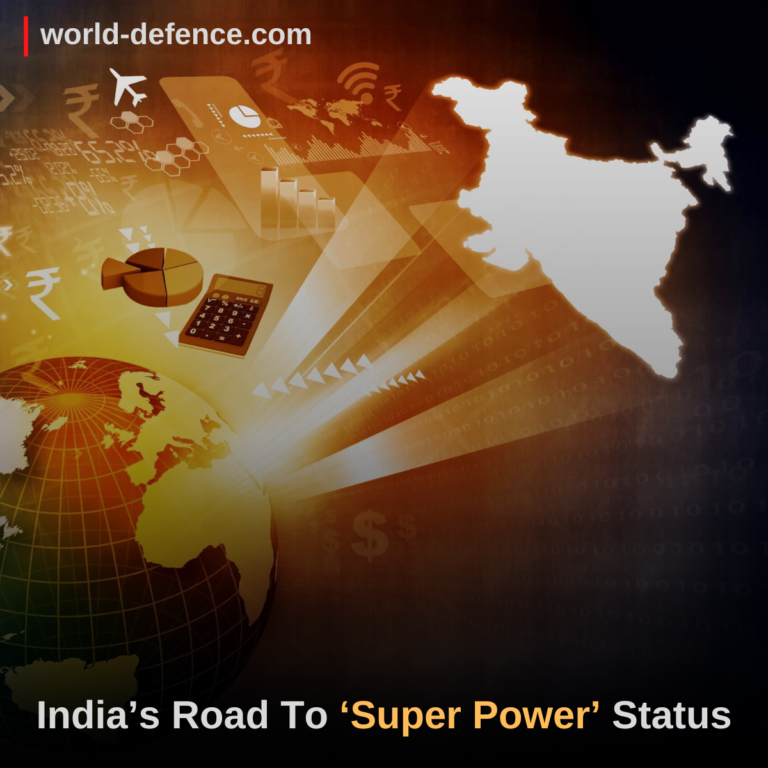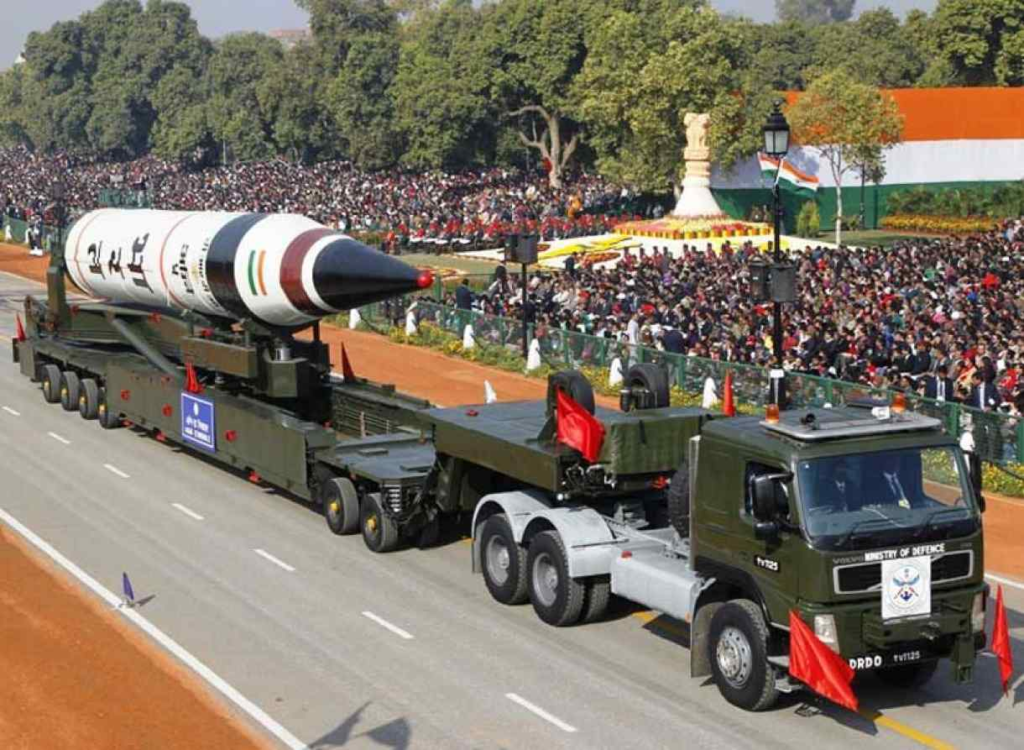
2047 will be a landmark year in the Indian calendar. India would be completing 100 years since attaining independence from the British regime. The first 25 years post-independence were both traumatic and formative years for India.
Advertisement
India was known as the land of ‘snake charmers.’ A non-aligned nation by choice, India was forced to fight four wars quickly: 1948, 1962, 1965, and 1971.
India had an insignificant to ‘not so significant’ standing at international fora. Geographical proximity with Russia did help. Russia used veto power in UNSC against western powers’ proposals on Goa and J&K (UNSC resolutions 99 and 100). Hungry mouths of millions of Indians were being fed by US grains donated under PL 480 program.
The turning point (read opportunity) came from an unexpected quarter. The 1971 elections in Pakistan threw up the most surprising results. Awami League of Sheikh Mujib had won the majority. ‘Punjabis’ governed Pakistan refused to accept the verdict, and the seeds for creating a new nation were sown.
Brutal assault by the Pakistan military in erstwhile East Pakistan led to a massive refugee influx in India. Indira Gandhi, the then PM, prompted India to accomplish a historical first after the Second World War. India’s Military crushed the Pakistani offensive in the west, ‘annexed’ East Pakistan and created a new nation, Bangladesh.
2022 and 1971 are a mere nanosecond apart in the celestial calendar. But the globe has changed exponentially when viewed with a geo-strategic telescope. The break up of the Soviet Union was, perhaps, the most unexpected event in the last 50 years.
Superpower rivalry ended with the USA emerging as an uncontested superpower. China’s multi-dimensional growth during the same period, the Chinese economy, in particular, has challenged the numero uno position of the USA.
Advertisement
Nuclear Deterrence: An Instrument Of Power & Peace
The ongoing Russia-Ukraine war, which ought not to have occurred, has brought into focus the need for a formidable deterrent. Ukraine willingly surrendered its nukes after the break up of the Soviet Union to gain the spotlight for a few milliseconds and, in the process, placed its future in the inky blue darkness of military blackmail by its neighbor, Russia.
Unfortunately for Ukraine, the clock cannot be turned back. A ‘nuclear’ Ukraine could not have been subjected to such humiliation. Nuclear deterrent, therefore, has become the currency of not only power but peace as well.
India may have faced a similar problem, but the excellent foresight demonstrated by Indira Gandhi as PM gave the green signal to Indian nuclear scientists to go ‘nuclear.’ It resulted in condemnation in international fora, sanctions, and, more importantly, the birth of a ‘Nuclear Pakistan.’

‘Buddha’ smiled again under the leadership of Atal Bihari Vajpayee as PM nearly a quarter century later. India had emerged as a nuclear power. The nuclear deterrent possessed by India ensured that both China and Pakistan, individually and in sync, did not try any major military misadventure during the past 50 years. Instability on both borders will continue to remain.
Highly location-centric conflicts viz Kargil with Pakistan and Galwan Valley with China did take place. The border situation with both nations remains volatile and is unlikely to change soon. But one thing is sure.
A full-scale military campaign is out of the question because all three nations possess nukes. The concept of ‘Mutually Assured Destruction (MAD),’ coined during the height of the Cold War, has become the propagator of maintaining peace by default.
Advertisement
Weaponized Space As New Frontier
But Nuclear deterrence as an instrument of maintaining peace may not survive in the coming decades, given that control of space becomes the next frontier of establishing supremacy. Supremacy in space requires three main capabilities. These are:
- Reliable Launch Vehicle.
- Satellite Fabrication Technology.
- Satellite Neutralization Capability.
India’s Space Research Organization (ISRO), a shining jewel of world-class high technology establishment, has placed India on near equal footing with China and USA. However, India cannot match either nation in the field of launch vehicle capability in terms of tonnage and frequency of launch. China and USA are in space.
We are yet to launch an Indian in space in an Indian launch vehicle. Establishing a permanent space station by India is still quite some distance away but highly probable and possible for a lack of resources.
India has lost the conventional weapon development race by a few decades in trying to play ‘catch up,’ which is never a winning proposition. India is unlikely to produce any ‘big ticket’ platform viz force multipliers, Heavy Lift Fixed and Rotary wing machines, strike aircraft, armored vehicles, nuclear submarines, PGMs, etc. The list is endless.
The absence and lack of R&D investments in the past six decades have made India one of the largest importers of military hardware. ‘Atmanirbhar Bharat’ is a nice slogan. But there’s a difference between what we say and what we do.
Soon, China may demonstrate the weaponization of its space station. As and when it happens, the entire constellation of satellites of all nations will become vulnerable. China may exercise both options – soft as well as hard kill.
A word about current space stations would be essential.
- ISS, the US-controlled space station, is a consortium-owned space station. ISS is due to retire in 2030.
- Chinese Tiangong is exclusively a Chinese effort. Tianhe Core module of Tiangong will be supplemented by two additional modules Wentian in July and Mengtian in October 2022.
- The Chinese space station is unique. It has a co-orbital companion in the form of a Hubble class Xuntian space telescope but with a 300 times larger field of view.
- Co-orbital capability can be easily transformed into a weapon-carrying platform when needed.
Advertisement
Need For Anti-Satellite Weapons Capability
In 2022 and beyond, can we imagine surviving without satellite communication? A nation having a formidable Anti-satellite weapon capability (ASATWC) can and will blackmail the ‘have nots’ as has been the case with nukes.
The US announcement of observing a moratorium on the deployment and future development of ASATWC is another fine example of US hypocrisy. It is merely a case of repetitive US profligacy.
The US developed and used nukes and then preached to the rest of the world about the dangers of nuclear weapons. It is the same in the case of ASAT weapons.

On April 18, 2022, Vice President of the USA Kamala Harris was highly generous in announcing the US decision to stop testing ASAT weapons to contain space debris.
China, India, Russia, and the USA have demonstrated Direct Attack-Anti satellite (DA-ASAT) capability. The record of tests carried out by these nations is as follows-
- China – January 2007.
- India – March 2019.
- Russia – November 15, 2021. Destroyed a satellite in LEO about 500 km from earth.
- The USA – February 2008. The USA carried out the test on the pretext of destroying a ‘rogue’ satellite containing toxic fuels. Essentially the test was carried out to validate the SM-3 interceptor.
Advertisement
India’s Space Doctrine
India is yet to announce its space doctrine formally. However, ISRO published its first-ever assessment of space situational awareness capability and a more critical application of such capability in 2021. ISRO also highlighted the need to track space debris.
The doctrinal approach to enunciate India’s space doctrine would/should encompass the following aspects:
- Development of offensive capability in space.
- Ability to neutralize adversary satellites in LEO.
- Development of ‘soft kill’ capability of adversary satellites.
- Development of a weaponized orbital platform.
Unlike our nuclear doctrine, which is still colored by western thoughts of no first use, our space doctrine must not be constrained by US hypocrisy of restraining further DA-ASAT destructive testing of satellites.

International Stance
Space debris threat to existing space stations and functional satellites (especially in LEO) has attracted the attention of world powers. United Nations will discuss ‘space security’ by forming an open-ended group.
This group is expected to submit its recommendations, which might lead to formulating multilateral legally binding measures nearly akin to the Nuclear non-proliferation Treaty.
India is not a signatory to NPT. Likewise, India must not sign any future treaty on management/control/utilization of space for peaceful purposes and ban on testing/developing Anti Satellite Weapons.
The world will likely witness a global realignment of the military alliance NATO after the Russia-Ukraine war ends. France and Germany are unlikely to continue to live with the unwritten hegemony of the USA. The energy security of EU nations will govern their relations with Russia in the long term.
DA-ASAT Weapon – The New Deterrent
India must not make the same mistake as it did in developing nukes. China exploded its first nuclear device in 1964. We took ten more years, primarily because of political infirmity.
India of 2022 is different. India’s demonstrated stand of maintaining and practicing unilateral pro-active neutrality regarding the ongoing Russia-Ukraine conflict has globally placed it as the numero uno ‘non-aligned’ nation.
Many military strategists propagated the paradox that in the 21st century, ‘soft power’ will replace offensive weapon power. However, the concept of ‘soft power’ as an instrument of control and deterrence has already proved to be a non-starter. The Russia-Ukraine conflict is a near-perfect example of the same.
The ineffectiveness of ‘soft power’ viz financial and trade sanctions in the short term is of no consequence, as is quite evident from the effect of sanctions imposed on Russia by the West. EU nations are still buying oil and gas from Russia and are facing the heat due to sanctions imposed on Russia.
The advent of satellite warfare is knocking at the doors. Fortunately, India is extremely well placed to be among the front runners in this race, unlike the conventional weapons race, which India lost over a few decades.
ISRO is already planning a possible mission to Venus, manned and unmanned Gaganyan, another attempt at a soft landing on the moon, the development of a heavier-load launch vehicle, etc. These developments would also enhance India’s ICBM capability.
The concept of the unmanned space station, which can be weaponized as and when required, would probably be an ideal answer to ISS and Tiangong. Possible weaponry could include DA-ASAT as well as a laser weapon.
Advertisement
India’s National Security Imperatives
India’s national security imperatives have a different dimension altogether because India is not part of any military alliance, at least as yet. The future of QUAD is, at best uncertain.
India must not stop the development of DA-ASAT weapons capability. A few more trials would be required to prove the reliability. The recent events have demonstrated that the biggest ‘rogue nations’ globally are P-5 nations. No less than the current head of the UN has hinted the same.
All P-5 nations continue to abuse the privilege of veto to suit their needs. India’s quest for a seat in UNSC has become irrelevant.
China will continue to pose significant challenges to India’s security but not by conventional weapons route. China’s expansion of ICBM silos from zero (two years back) to 360 (as of April 2022) is the most significant development India must consider.
India must adopt a highly proactive stance of developing DA-ASAT weapons and formidable and reliable satellite launch and fabrication capability to beat China at its own game.
The self-proclaimed military strategists of India would do well to move over from the ‘CDS and theater command’ conundrum to looking beyond 25 years from now and advise those in power to make a choice.
Without Nuclear and DA-ASAT weapons capability, India will not achieve a leadership role in international affairs.
Advertisement